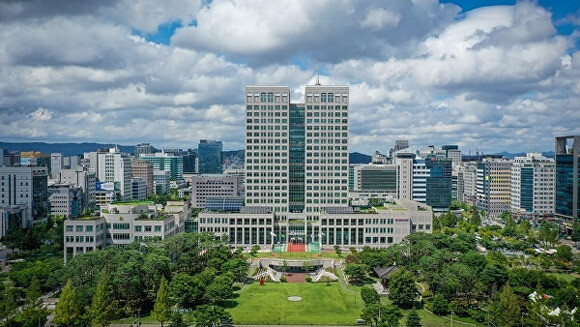
Daejeon, South Korea - Daejeon Metropolitan City has officially announced the individual housing prices for 2025, revealing a modest average increase of 1.04% compared to the previous year. The data, encompassing 73,507 individual housing units, including detached and multi-family homes, was made public on April 30th. This announcement comes at a time when the government's publically assessed value realization rate remains frozen at its 2020 level for the second consecutive year, a factor that has significantly influenced the price fluctuations.
A closer look at the district-level data indicates varying degrees of price appreciation across Daejeon. Yuseong-gu recorded the highest increase at 1.28%, followed by Seo-gu at 1.16%. The central districts of Jung-gu (0.89%), Daedeok-gu (0.88%), and Dong-gu (0.72%) experienced relatively lower growth rates. This regional variation likely reflects localized market dynamics, including demand, development activities, and infrastructure improvements within each district.
The decision to maintain the 2020 publically assessed value realization rate, as determined by the Ministry of Land, Infrastructure and Transport, means that the announced price changes primarily reflect actual market value fluctuations. This policy aims to stabilize the tax burden on homeowners, preventing significant increases that might have occurred if the realization rate had been adjusted upwards to align more closely with current market values.
An analysis of the price distribution reveals that the majority of individual housing units in Daejeon fall within the more affordable range. Approximately 76% (55,906 units) are priced at or below 300 million KRW. The mid-range category, between 300 million KRW and 600 million KRW, accounts for 18.7% (13,747 units), while properties valued above 600 million KRW constitute a smaller segment at 5.3% (3,854 units). This distribution underscores the prevalence of relatively lower-priced housing options within the city.
In terms of housing stock distribution by district, Seo-gu holds the largest share with 18,803 units (25.6%), followed by Dong-gu with 17,034 units (23.2%), and Jung-gu with 15,756 units (21.4%). Yuseong-gu accounts for 11,567 units (15.7%), and Daedeok-gu has 10,347 units (14.1%). The composition of housing types further illustrates the city's residential landscape, with detached houses being the most common at 32,411 units (44.1%). Housing units within mixed-use buildings represent a significant portion at 26,215 units (35.7%), followed by multi-family houses at 12,826 units (17.4%), multi-unit houses at 1,672 units (2.3%), and other types comprising a small fraction at 383 units (0.5%).
Daejeon City has established a clear process for residents who wish to contest the announced individual housing prices. From April 30th to May 29th, homeowners and other concerned parties can submit their objections through the Real Estate Public Price Information website (realtyprice.kr) or by visiting the tax departments of their respective district offices or local community service centers. This period allows individuals to formally dispute the assessed value if they believe it does not accurately reflect the market value of their property.
Following the objection period, the city will conduct a thorough reinvestigation of the properties for which appeals have been filed. This process includes a verification step by the Korea Real Estate Board to ensure impartiality and accuracy. Subsequently, the District Real Estate Price Deliberation Committee will review the findings and make a final determination. The adjusted publicly announced prices will then be communicated individually to the appellants by June 26th.
Cho Joong-yeon, Head of Daejeon City's Tax Affairs Division, emphasized the importance of these publicly announced prices, stating, "Individual housing prices serve as crucial data for various administrative purposes, including providing essential housing market information, calculating property taxes, administering welfare programs, and establishing benchmarks for the purchase of national housing bonds. We encourage all citizens to take an active interest in these values."
The city also reminded residents that the publicly announced prices for joint housing units, such as apartments, row houses, and multi-unit dwellings, are also available for review and objection through the same channels: the Ministry of Land, Infrastructure and Transport's Real Estate Public Price Information website (realtyprice.kr) and the tax departments of the respective district offices and community service centers. This parallel process ensures transparency and allows all homeowners in Daejeon to engage with the valuation process.
This announcement and the subsequent objection period are vital components of ensuring fair and accurate property valuation, which directly impacts property taxes and various other administrative functions within Daejeon City. The modest average increase, coupled with the frozen realization rate, suggests a degree of stability in the housing market and the associated financial obligations for homeowners.
[Copyright (c) Global Economic Times. All Rights Reserved.]



























